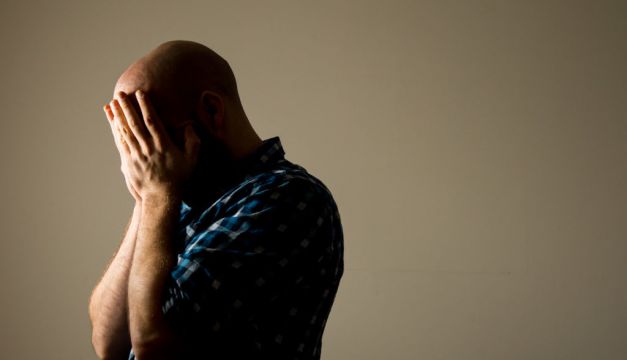Men who have body image issues or an eating disorder often deal with a "double stigma", according to a spokesperson for Bodywhys, the eating disorders association of Ireland.
The organisation has been providing support for people with eating disorders since 1995 and in recent months has seen a surge in men accessing its services. It comes in the wake of recent campaigns which highlight how the issue affects men.
Bodywhys communications officer, Ellen Jennings, says there is a "double stigma" for men. "Not only is there the stigma of being a man with an eating disorder and how that is viewed in society, there is also the stigma of it being considered a female issue."
Bodywhys saw a 69 per cent increase in men accessing its services online and a 114 per cent increase through email between October 2020 to 2021.
According to the Irish Medical Journal, between March and September 2020, 40 per cent of hospital admissions from eating disorders were men, the highest ever amount.
One of the main issues is that men are often slower to seek help.
“I think that is where the issue lies, it often takes men longer to acknowledge there is a problem in the first place," Jennings says. “The delay in getting treatment can lead to the issue getting more entrenched."
Delay in seeking help
There are certain risk factors there are more male-orientated. "If you think of the focus on muscularity and the drive to bulk up, this can lead to over-regulating your protein intake," Jennings says
New research also shows that men partake in binge-eating more, which is often a sign of underlying issues.
Sadly, a lot of men do not reach out until they get to a crisis point.
Advertisement
Jennings says the current statistics do not really reflect the reality of the situation as many men are under-diagnosed.
Binge-eating "is a coping mechanism," Jennings says, and men who are vulnerable might get used to coping in that way. She adds: "We often say when things around them breakdown, they turn to binge-eating."
The one thing that is similar no matter what gender, is how an eating disorder develops. "Usually there is some sort of traumatic event in your life which changes your relationship with food, and you use food as a way to cope," she says.
It is something that can happen at any stage in life – a 2019 US study showed that one in seven men will develop an eating disorder by age 40.
Unrealistic body images
Social media can often present a very curated view of life which leads to people comparing themselves to unrealistic body images.
Sadly even when there is a disclaimer on a photo saying it has been doctored, it does not stop people from having those same thoughts of how they could look better.
This pursuit of the perfect body can lead to what is known as Orthorexia. It is broadly described as having an unhealthy focus on eating in a healthy way.
Jennings says: "It is that inability to stray from certain healthy foods and labelling everything else as bad for you."
While overeating is one type of eating disorder, this behaviour of being compulsive about what you eat or not being able to "stray from a very strict eating regiment," is another type, she says.
Christmas – and more specifically Christmas day – can be a difficult time for people with eating disorders.
Jennings says: "Having someone you can turn to on the day is really important.
Tell someone you trust that maybe you are starting to get anxious about things and be open about what you are feeling.
She encourages people to reach out and contact Bodywhys over Christmas if they overwhelmed. “I think it can be difficult for people around Christmas in two ways – firstly, there is the sense of indulgence initially, but afterward there is the guilt which comes with overeating."
For those who are suffering with body issues or an eating disorder, being able to distance yourself from the eating disorder voice in your head is an important step in recovery.
“The eating disorder is not your own voice, you did not choose to have that voice," Jennings says.







